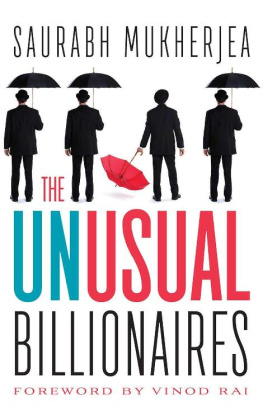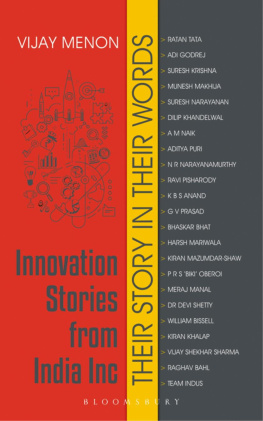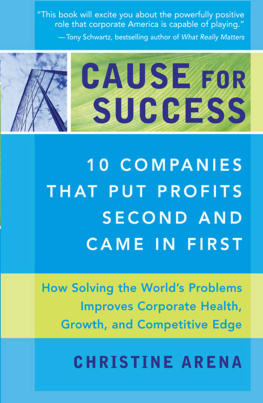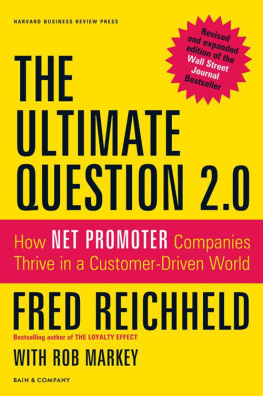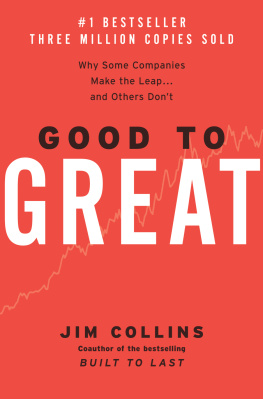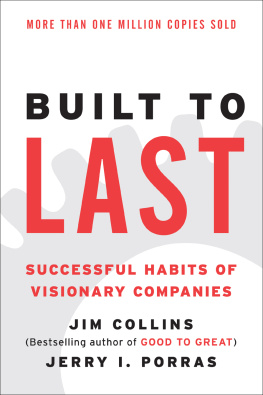To my paternal grandparents, Shephalika and Nirmal Mukherjea, for believing in me before anyone else did
Foreword
Entrepreneurship is in the air. Over the past few years, Indian start-ups have attracted billions of dollars from venture capitalists all over the world. Old business models, in India and elsewhere, are seemingly being disrupted by a new wave of technological innovation. At the opposite end of the corporate spectrum, the sheer size of non-performing assets in the Indian banking system and the profligacy of some Indian promoters are making headlines almost every day. Clearly, the old order has not yet fully given way to the new and in India, we have become all too familiar with the nexus between big business and politics. Yet, even in the midst of these imperfections, I believe that there is a new wave of transparency and good governance that is, slowly but surely, disrupting the old way of doing business.
Corporate India knows this and is gradually adapting to this new environment. After all, change isnt exactly new for Indian promoters given that 2016 is the twenty-fifth anniversary of the 1991 reforms that ended the Licence Raj and opened up most Indian businesses to foreign competition. In fact, the roster of companies in this book is a textbook case study of corporate India successfully grappling with change. Companies like Asian Paints, Berger Paints, and Marico survived and thrived after 1991, while HDFC Bank, Axis Bank, Page Industries and Astral Poly were born and took flight post-1991. The journey wasnt easy for these companies and yet all seven of them have shown that they have what it takes to succeed regardless of what might be taking place in the external environment.
In fact, there are many lessons for all of us in the success of these companies. One lesson is that clean, well-managed companies cannot just survive but can actually thrive in India. A promoter who looks beyond his own and his familys selfish interests can achieve a lot for the company, for society (in terms of jobs created), and for shareholders. Secondly, hard work and integrity will never go out of fashion. Saurabh Mukherjea correctly notes that single-minded focus on the companys business and prudent capital allocation are core virtues that promoters who deliver long-term success possess. This comes as a welcome relief from the all-too-familiar tendency of Indian promoters to divert attention to flavour-of-the-month businesses and short-changing minority shareholders for personal gain.
I have followed Saurabhs work for a few years now and admire his intellectual rigour, clarity of thought, and diligence in analysing companies. All of these qualities are on display in this book. By speaking to both insiders and outsiders, Saurabh provides a unique perspective on how these companies have built and sustained their competitive advantages over long periods of time.
Saurabhs obsession with rigorous financial data analysis is well known. By defining greatness in financial parameters, Saurabh has taken away biases in choosing winners. I am sure readers will appreciate the simplicity of the filters he has used to identify great Indian companies10 per cent revenue growth and 15 per cent return on capital employed (ROCE) for every consecutive year over the past decade. Based on his data crunch, Saurabh reaches a grim conclusion: over 99 per cent of the 5000 companies that are listed in India simply fail to fulfil his filters over the past decade.
This is indeed a disappointing result because if the purpose of business is to grow consistently and grow in a profitable manner, an overwhelming majority of Indian companies have failed. Is it any surprise then that our banking system is clogged with loans that will never be recovered? Can we now conclude that Indian promoters focus more on lining their pockets than achieving profitable growth? These are some of the more difficult questions that I was left asking after reading the book.
And what are the answers? What is the way ahead? We can learn from the elite set of firms profiled in-depth in this book. Most of them are well-known franchises that own some of Indias most familiar brands. They have created their own roads to success and growth without compromising on profitability or integrity. As chapter after chapter of this book shows, the secret of success isnt complex. Manic focus on running a business efficiently, creating and sustaining competitive advantages, and prudent capital allocation lie at the heart of these winning companies. No wonder then that a portfolio consisting of these companies beats the Sensex hollow year after year (even if the portfolio itself is left untouched for a decade).
The Unusual Billionaires is a compelling read with simple themes. The in-depth stories of the journeys of these seven companies are almost like a highlights package of corporate Indias achievements and inflection points over the past few decades. In the ups and downs of these companies, there are plenty of anecdotes that you will enjoy and lessons that you will find heart-warming. At its heart though, this book is about perseverance and integrity and about the fact that even as the wrong sort of corporates grab the headlines, the corporate outperformers quietly go about building outstanding businesses which enrich our lives in multiple ways. I hope that you enjoy reading the book as much as I did.
Vinod Rai
Chairman, Banks Board Bureau,
Former Comptroller and Auditor General of India
New Delhi,
April 2016

CHAPTER 1
Searching for Greatness
Greatness is not a function of circumstance. Greatness, it turns out, is largely a matter of conscious choice.
Jim Collins, Good to Great (2001)
It is a rough road that leads to the heights of greatness.
Seneca
Asian Paints on the Rajdhani Express
As I stood on the railway platform waiting for the Rajdhani Express to arrive, I was thinking about how lucky we had been to get first-class tickets on this premier express train. It had been a long, hot day in the city of Kota for me and my colleague. We had come to Kota, a city in the middle of Rajasthan, to visit a few companies and, with the days work done, we were now looking forward to a hot meal on the train followed by some sleep, before our train pulled into Mumbai Central at 7.30 a.m. the following day. The Rajdhani Express arrived bang on time and we clambered into its cool compartments.
As we entered our first-class compartment, I noticed an elderly gentleman sitting in the seat opposite ours. I greeted him and his response betrayed an unmistakable Bengali accent. As dinner was being served (chapattis, paneer, dalall steaming hotwith chicken cutlets for carnivores like me), I struck up a conversation with the Bengali gentleman. It turned out that he ran his own company which, for the past forty years, has been providing consultancy services to the Indian oil-refining industry. The consultancy service was of a specialized kindit was focused on helping oil refineries identify the correct coatings, paints and dyes for their oil tankers and oil-storage tanks. So, which companys coatings, paints and dyes did he recommend, I asked. Asian Paints, was the unhesitating reply. There is no one else in the same league as Asian Paints. In the industrial paints and dyes segment, they are the unquestionable leaders and have been for most of my career.

